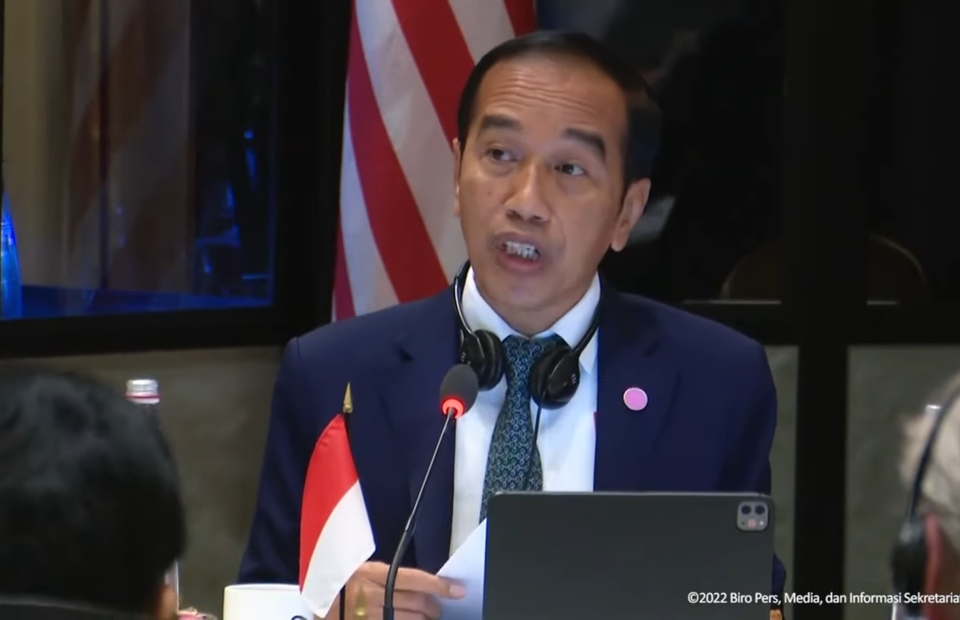JAKARTA – President Joko “Jokowi” Widodo said he was optimistic Indonesia’s economy could have expanded 5.1 percent in the last quarter, supported by increasing public consumption and investment amid robust investors’ confidence in the country.
With the remarks, Jokowi underlined Indonesia’s resilience in the face of rising inflation and growing global recession risks.
“When the economic growth rate of other countries in 2022 was revised down by a few percent, Indonesia was only revised down by 0.1 percent,” Jokowi said during a discussion with 16 editors-in-chief of national mass media at the State Palace in Jakarta on Wednesday.
He was referring to the World Bank report in April, which revised Indonesia’s economic growth projection by ten basis points to 5.1 percent this year from its earlier projection in October of 5.2 percent. In the same report, the World Bank also cut world economic growth in 2022 to 2.9 percent, from the previous forecast of 4.1 percent.
The largest economy in Southeast Asia expanded by 5.01 percent in the first quarter of this year as the country rebounded to its expansion pace before the Covid-19 pandemic. The Central Statistics Agency (BPS) will announce the second quarter growth result on August 5.
Economic activities in Indonesia have returned to normal, with the number of Covid-19 cases easing. The middle class was spending again during the festive month of Ramadan and Idul Fitri, boosting households’ consumption accounting for 53 percent of the country’s gross domestic product (GDP).
Indonesia also saw a substantial inflow of foreign direct investment in the past few quarters. Investment accounted for 30 percent of its GDP.
On top of that, the country has been posting trade surpluses for the 25th straight month, which Jokowi credited to his policy to push nickel and several other metals downstream industry.
Jokowi also underlined that the 2022 state budget was in a stronger position compared to the last two years, despite the government having to raise fuel subsidies by more than 300 percent this year.
Thanks to, in part, a windfall tax revenue from rising commodity prices, Jokowi said he believed “the state budget deficit will be below 4 percent” of GDP this year.
Compared to last year’s deficit of 4.65 percent, according to the Ministry of Finance’s latest projection, this year’s state budget deficit would be at 3.92 percent of GDP.
The world is now hit by high inflation due to spikes in food and energy prices, made worse by the prolonged war between Russia and Ukraine. Still, Jokowi was confident Indonesia would be able to rein in domestic rising prices, especially those from food.
“I believe Indonesia can be self-sufficient in rice,” said Jokowi. Since 2015, the government has built 29 dams, with construction for 32 dams still underway. These irrigation infrastructures allow land that could never grow rice to now harvest rice.
Based on data from the Ministry of Agriculture, Indonesia has had rice production surpluses in the past four years. The rice surplus in 2018 was 4.37 million tons. In 2019 it was 2.38 million tons, and in 2020 it reached 2.13 million tons.

